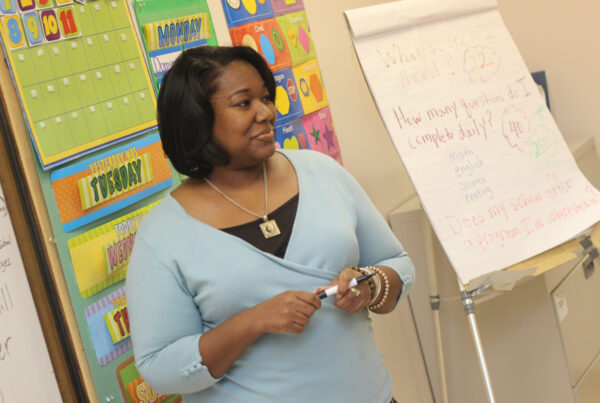My Twitter colleague (we’ve actually never met) Jimmy Casas (@casas_Jimmy) posted a blog over the weekend regarding a teacher who admitted fearing the idea of calling parents. The fear among teachers is fairly common. What is unique is that this teacher actually admitted it. It’s a great blog and I encourage you to read it. You can find it here. Some great points are made about how the culture of relationships between families and schools could be different if our practices were different. Good stuff. I’m inspired to build upon Jimmy’s ideas and offer in what context the ideas presented in Jimmy’s blog might have the greatest impact.
The idea of positive communication is a good one and I would agree with Jimmy that communities are stronger when we value communication both in our schools and teacher preparation programs. The sad truth, however, is that we do little to build the skills and confidence of teachers to make those simple phone calls yet hold them to standards like phone logs, and “X” number of positive phone calls home, etc. The truth is, disengaged families see right through these thinly veiled initiatives and continue to harbor the feelings that true relationships are not valued by school staff and as a result, do not warrant their loyalty to the school. For many families, the education of their children is not a joyful experience, but a necessary evil.
I wrote a blog a while ago about something I learned from Delta Airlines. (If you are interested, you can read the whole blog here.) It’s a long story, but the premise centers on the airline’s continuous effort to improve customer service and build brand loyalty. As I take my seat on every Delta flight, the airline acknowledges that I have a choice in air travel and thanks me for choosing them. And there it is: loyalty and customer service. What if all of our efforts to reach out to families were not about sharing good or bad information, but just to thank them – thank them for choosing our school, because the reality is, they don’t have to. There are growing lists of educational options that are and will be open to families from charter schools to virtual schools and in many states, legislatures are looking at providing the state per pupil funding to make it happen.
Phone calls, or any type of communication, can be extremely effective if we understand that the purpose is not simple communication, but rather to build trust, which develops stronger relationships and those relationships evolve into loyalty. Educators must be the catalysts in these important relationships.
So try this: pick up the phone and call a family and simply say: “I wanted to call you and thank you for allowing me the opportunity to teach (student). I really appreciate you entrusting me with your most prized possession and don’t tell you often enough how much I value teaching (him/her) and working with you.” Then, simply listen. Whatever fear there is of making phone calls will begin to dissipate quite rapidly.
The Common Thread: Three Things to Know
We know from research that educators spend a great deal of time sharing information with families, information that is important for families to know but we spend little time cultivating avenues for allowing families to share with us information that is important to them. Because educators are fairly adept at one-way communication (sending stuff home) our opportunities to share our expectations for families and their children can come as often as the weekly folder home, or website postings, newsletters, teacher blogs, Google hangouts, etc. There are many opportunities for families to answer, react and respond, but few provide the real opportunity for dialog that leads to a better understanding of what commonalities exist already upon which can be build solid foundations for improved relationships and efficacy.
In many of my workshops the audience is a mixture of families and school personnel. When this happens, I go through an exercise that hopefully underscores the ideas that connect us to families more so than we might think. I call the exercise “Three Things to Know.” It never fails to open the eyes (and often the hearts) of both families and educators.
First, I separate families from educators and place them as far apart in the room as I can. Next, I give each group, very quietly, the instructions for the exercise. What they don’t know is that each group gets exactly the same set of instructions. I usually tell them that this is their opportunity to tell the other group exactly what they want them to know – no holds barred. There are no names and everything is written upon chart paper but not revealed to the other group. I ask each person to think of three things that they want the other group to know and then as a group choose the items they wish to share and record them on chart paper.
What happens next is usually very eye opening. First, the groups realize they have been asked to do the same thing. That usually elicits silence, at times, pin-dropping silence. The comments then usually fall into three categories, critical, humorous, and the most important category, commonality.
Sometimes there are comments that are quite critical, like “it would be nice if you made sure your child came to school with their homework completed,” or “you can’t make excuses for your child forever.” On the family side, the criticism can be just as sharp. Things like “you are unreasonable with your expectations of what parents are to provide to your classroom,” “my child says you don’t like him/her,” and “I expect you will treat my child with respect.”
But along with those critical comments, which are important to air I might add, there are always humorous comments. My favorite, which comes up almost every time, is this one “please don’t believe everything your/my child says about me and I won’t believe everything they say about you.” That one always gets a laugh.
The most important comments however, are those items in which both groups agree. Again, in almost every workshop, each of the groups, families and educators, write the same or similar things. Read these real responses below. I am pretty confident you will able to determine who wrote what:
I want what is best for your child/I want what is best for my child
I want your child to succeed/I want my child to be successful
I care about your child/I care about my child
I would like to work with you more/ I would like to work with you more
If you consider the last set of statements as the foundation upon which you can build true engagement with families, then the manner in which you communicate, whether it be telephone, social media or hopefully, face-to-face becomes secondary to what you communicate and most importantly, why you are communicating at all.
Communication is most effective when relationships are real. Real relationships lead to loyalty. Loyalty begins with an understanding that everyone cares.
When everyone cares, fear is erased.
And I know you care.



